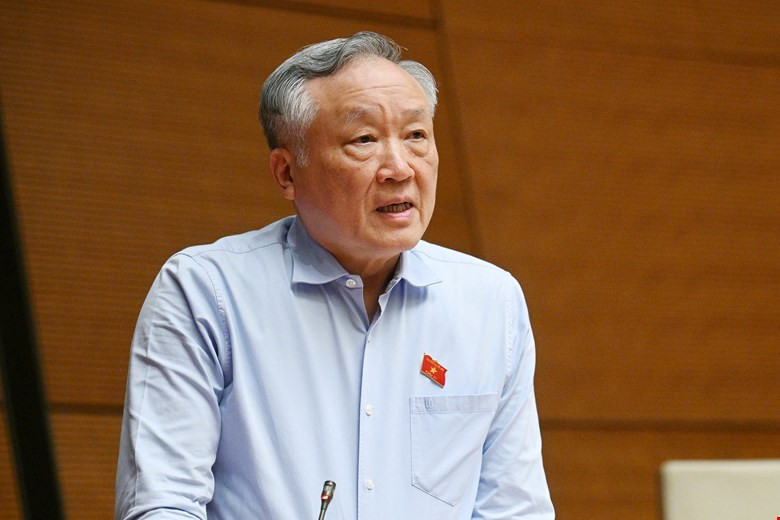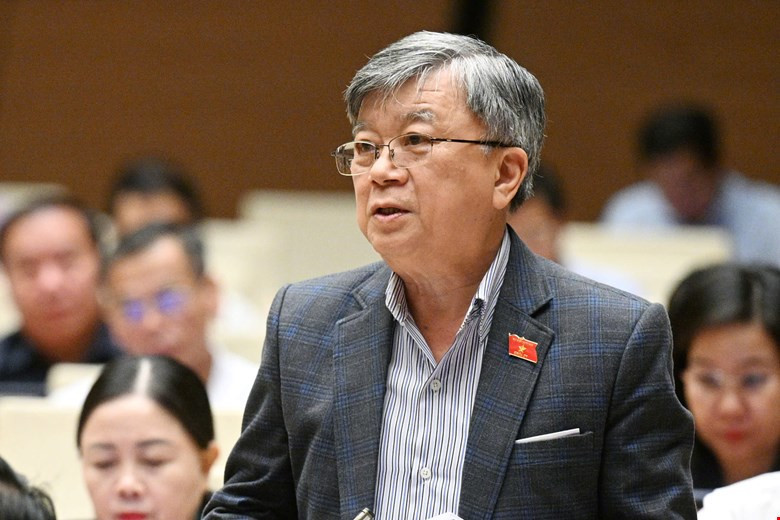At a National Assembly session yesterday, lawmakers debated proposed amendments to several laws including the Civil Procedure Code, Law on Administrative Procedure, Law on Juvenile Justice, Law on Bankruptcy, and the Law on Mediation and Dialogue at Court. Among the topics discussed was the creation of specialized courts within international financial centers.

Contributing to the discussion, Permanent Deputy Prime Minister Nguyen Hoa Binh stated that establishing specialized courts within these financial hubs - planned for Ho Chi Minh City and Da Nang - is crucial for resolving legal disputes and conflicts that arise in such international environments.
“These centers will host both Vietnamese and foreign financial institutions, but the majority will be international. The purpose of establishing these centers is to attract global capital and resources for national economic development,” the Deputy Prime Minister explained.
“One of the key concerns of foreign investors is the legal protection of their assets and ownership rights. Specialized courts are intended to resolve disputes in these financial hubs. However, if the legal framework only addresses organizational aspects, it might fall short of fully addressing the issue,” Binh noted.
He also highlighted a major challenge: Vietnamese law currently mandates that court proceedings be conducted in Vietnamese. “In financial centers where international institutions interact, it will be very difficult to conduct trials in Vietnamese,” he emphasized.
“Many countries address this by hiring foreign judges. Therefore, the nationality of judges working in these financial centers is also an important issue to consider,” Binh said.
In response, National Assembly Deputy Truong Trong Nghia from Ho Chi Minh City stressed that the legal framework must support seamless economic integration. He pointed to alternative dispute resolution (ADR) systems such as arbitration and mediation, which are widely adopted globally alongside traditional court proceedings.
“There are matters that courts must resolve, but many can be handled through arbitration and mediation. That’s why most countries have established commercial arbitration laws,” Nghia stated.
New and evolving legal territory

Chief Justice of the Supreme People’s Court, Le Minh Tri, responded to the discussion by noting that while the draft currently addresses the structure of specialized courts in financial centers, it does not go into detail - because the issue is relatively new and still under study.
“At the beginning of June, I will visit China and a few other countries, and additional delegations will be sent out to quickly study the structure, models, functions, and applicable legal systems to ensure the feasibility of these specialized courts,” Tri shared.
He added that the court system will focus on enhancing English language proficiency and training officials in international law to better handle disputes in these globalized contexts.
“This is a significant undertaking, but the Supreme People’s Court will implement it as directed by higher authorities and in line with the country’s development goals, particularly as we plan to establish two international financial centers in Ho Chi Minh City and Da Nang,” he emphasized.
Tri affirmed that the implementation of specialized courts will follow a roadmap set by the Government and the guidance of the Politburo.
“In this phase, our primary objective is to strengthen human resources for regional courts, and also to enhance decentralization and delegation in line with a three-tiered court system: supreme, provincial, and regional,” he concluded.
Addressing administrative litigation procedures, Chief Justice Tri acknowledged the need for legal reform. “If we don’t amend the law, the process lacks seriousness. But if we enforce it strictly, it becomes unworkable,” he said.
He cited the example of provincial and municipal chairpersons, who face heavy workloads in rapidly developing areas.
“Requiring them to attend around 500 mediation or trial sessions annually would leave them no time for governance,” he explained. As a result, Tri said his office would continue studying and proposing suitable procedural sanctions based on lawmakers’ feedback.
The Vinh